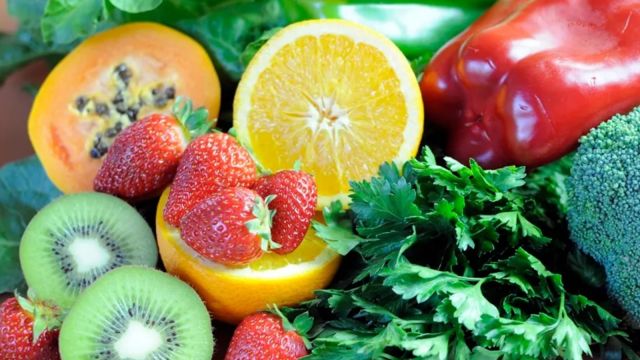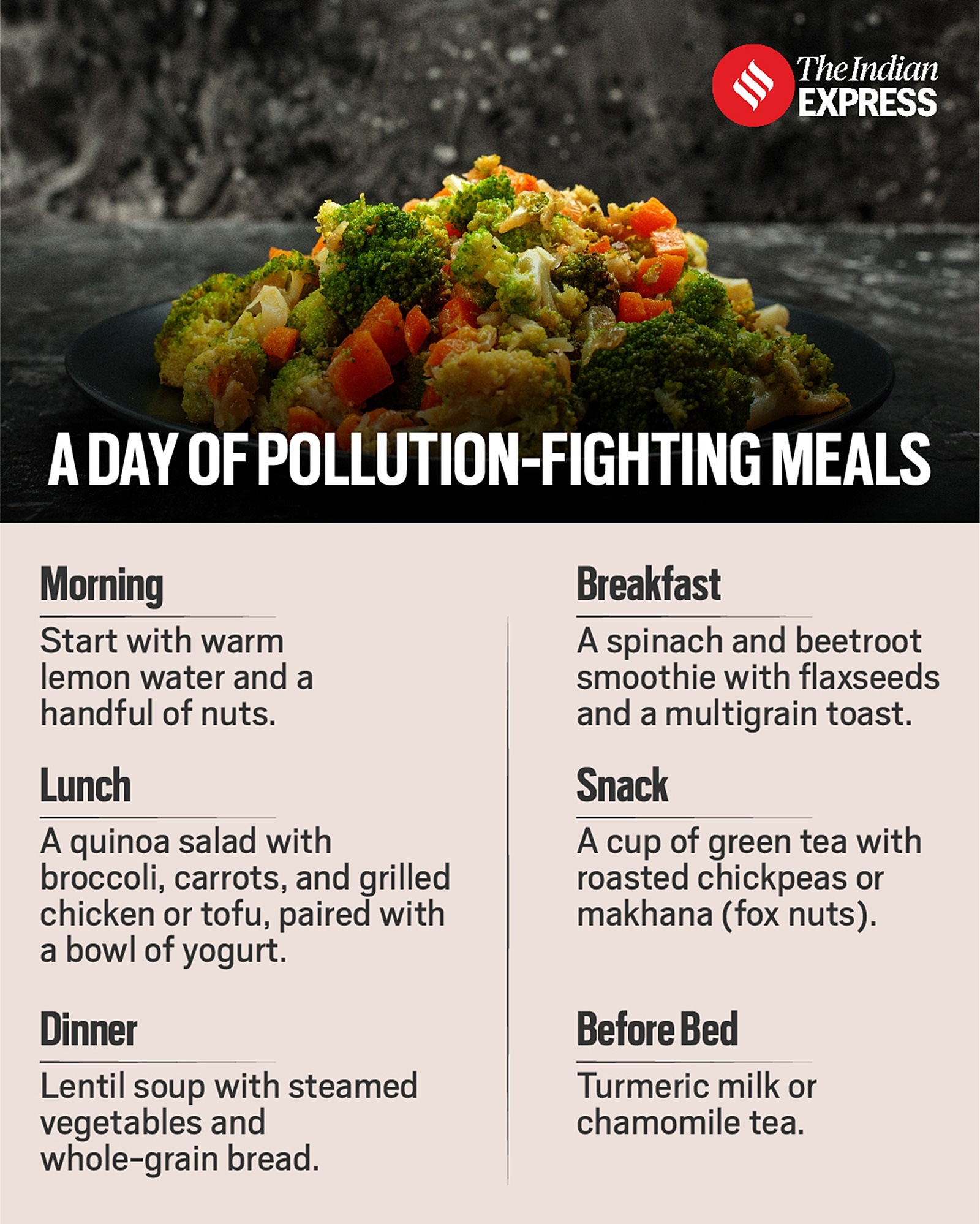Air pollution vs diet: What foods to eat to fight PM2.5, flush out toxins?
Include more foods that can act as a natural shield
 While wearing masks and using air purifiers are essential, your diet also plays a critical role in combating the harmful effects of pollutants. (File photo)
While wearing masks and using air purifiers are essential, your diet also plays a critical role in combating the harmful effects of pollutants. (File photo)As pollution levels soar in Delhi-NCR, poor air quality can aggravate respiratory diseases, weaken the immune system and lead to chronic health issues. While wearing masks and using air purifiers are essential, your diet also plays a critical role in combating the harmful effects of pollutants.
The Role of Nutrition in Fighting Pollution
Pollutants generate free radicals in the body, unstable molecules that damage cells and lead to inflammation. To counteract this, we need a diet rich in antioxidants, vitamins and minerals. These neutralize free radicals, cleanse the body of toxins and support the lungs and liver, which bear the brunt of pollution exposure.
Foods That Shield Your Body
Antioxidants are your body’s frontline defence.
Vitamin C: Found in oranges, guavas, kiwis, and strawberries, it strengthens the immune system and reduces the damage caused by pollutants.
Vitamin E: Nuts, seeds, and vegetable oils are excellent sources of Vitamin E, which protect cells from damage.
Beta-Carotene: Carrots, sweet potatoes, and spinach are rich in this antioxidant, which converts to Vitamin A, essential for lung health.
Inflammation caused by pollution can exacerbate conditions like asthma and bronchitis. Anti-inflammatory foods can help soothe this response:
Turmeric: Curcumin, the active compound in turmeric, is a potent anti-inflammatory component. Boil with peppercorns to make it more available. Add turmeric to milk or curries.
 Foods that help fight pollution.
Foods that help fight pollution.
Ginger: Ginger can be consumed as tea or added to meals.
Omega 3: Rich in Omega-3 fatty acids, fish is a common source but you can have chia seeds and flax seeds too.
Since your lungs are directly exposed to polluted air, include foods that improve respiratory health.
Beetroot: Its high nitrate content enhances oxygen uptake.
Apples: Flavonoids and Vitamin C in apples have been linked to better lung health.
Cruciferous Vegetables: Broccoli, cabbage and Brussels sprouts are packed with compounds that protect lung tissue.
Pollution introduces toxins into the body, which must be flushed out:
Lemon and Citrus Fruits: Their high Vitamin C content aids in detoxification.
Leafy Greens: Spinach and coriander help the liver process toxins.
Green Tea: Rich in catechins, green tea boosts liver function and supports detox.
A strong immune system is your body’s shield.
Probiotics: Yogurt, kefir and fermented foods improve gut health and strengthen immunity.
Zinc-Rich Foods: Pumpkin seeds, chickpeas, and nuts support immune response.
Vitamin D: Limited sunlight during polluted months can lead to deficiencies. Include fortified milk, mushrooms, and eggs in your diet.
Staying hydrated is crucial to flushing out toxins. Water, herbal teas, and soups not only hydrate but also provide essential nutrients. For an extra boost, consider infused water with lemon, mint, or cucumber.
What to Avoid
Stay away from processed foods as these increase inflammation. Excess sugar weakens the immune system, excess salt can lead to dehydration, making it harder for your body to eliminate toxins.
(Narang is nutritionist at Indraprastha Apollo Hospitals, New Delhi)
- 01
- 02
- 03
- 04
- 05































